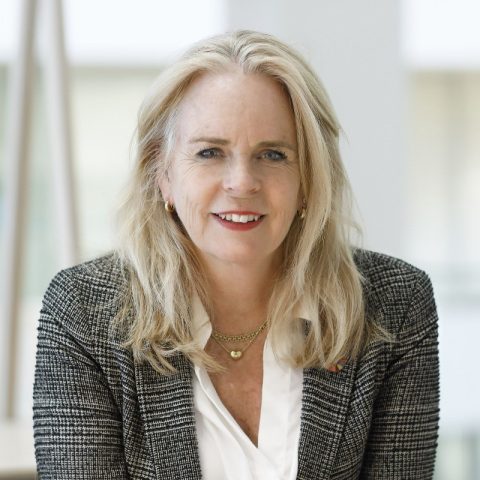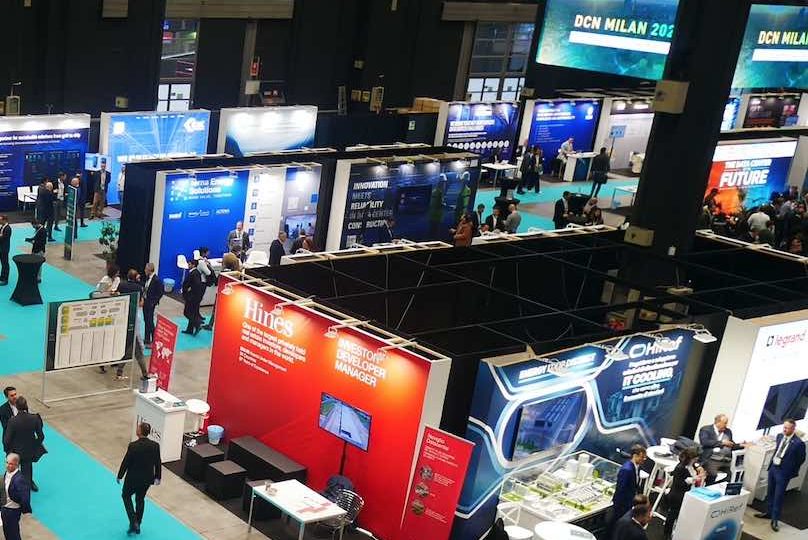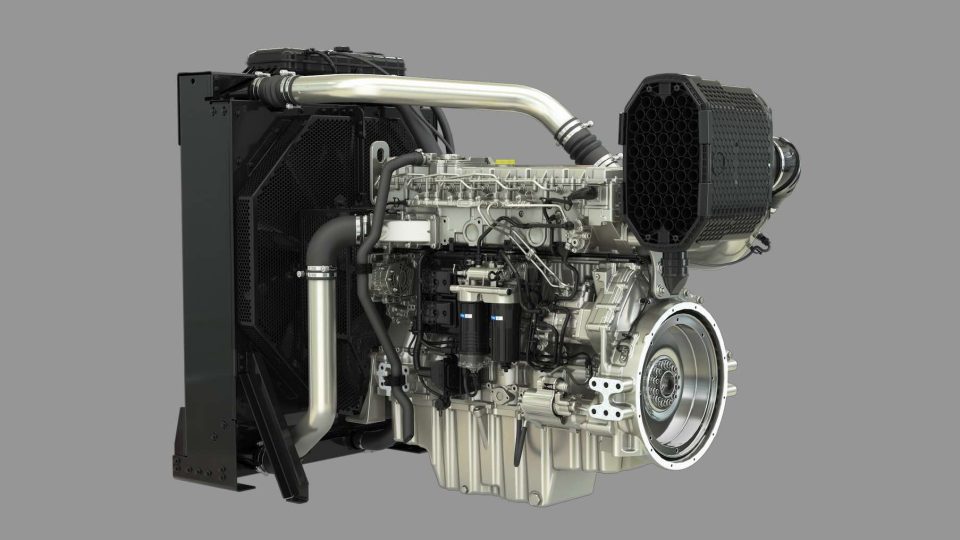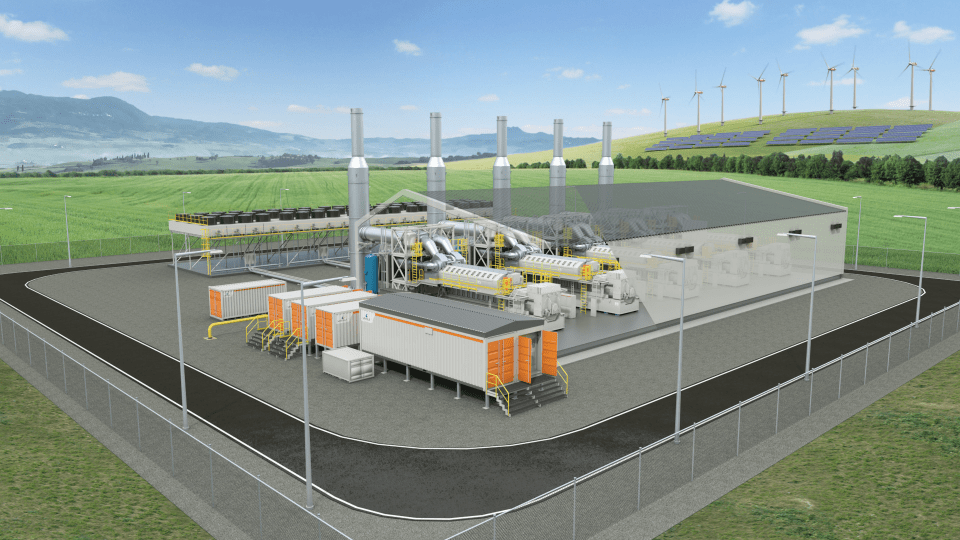Ingela Halling (Vattenfall) shares vision of the UK’s energy transformation
Vattenfall Network’s Vice President Ingela Halling outlines the company’s approach to helping UK businesses secure a reliable energy supply, while fostering environmental protection – ensuring that future generations inherit a cleaner, more resilient energy ecosystem.

In the quest for a sustainable energy future, the UK faces major challenges – from escalating electrical demands to the urgent need for grid modernisation. At the forefront of addressing these challenges is Ingela Halling, Vice President of Vattenfall Networks who, in our exclusive Q&A, discusses Vattenfall’s long-term vision and plans to develop the UK’s energy sector.
Hi Ingela, thank you so much for joining us today! Could you kick things off by sharing a bit about your background?
“Halling from a little village in the heart of Sweden, I moved to Linköping to pursue my Master’s in Science. It was during my academic pursuits that I discovered a real fascination for the energy sector – a field I’ve been dedicated to ever since. My career has taken me through various roles within the industry, each enriching my experience and honing my expertise. Today, I am thrilled to be part of Vattenfall’s goal to shape a fossil-free future.”
How have you seen the energy sector evolve since you first started?
“The shift towards electrification has been transformative. Earlier on, the industry relied heavily on traditional fossil-fuel technologies, viewing renewable electricity as experimental. However, we’re now witnessing a paradigm shift. Sustainability has transitioned from being an ethical choice to an absolute necessity, driven by shifting opinions, escalating consumer expectations and legislative changes – and businesses are recognising the urgency to adapt.”
What do you see as the biggest challenges for the UK’s energy sector today?
“Demand for electricity is soaring at an unprecedented scale, and in the UK is predicted to triple by 2050. Demand for new grid connections is putting major pressure on the Distribution Network Operators (DNOs), leading to critical bottlenecks and delays. Many of our clients have informed us that they are being struck with a waiting period of around 5-10 years for network reinforcement works before they can secure an electrical grid connection via their DNO. The UK Department for Energy Security and Net Zero has recently announced changes that aim to cut average delay time for projects to connect to the grid from 5 years to 6 months, but it remains to be seen whether these reforms will deliver.
We also need to rapidly increase energy storage capacity in the UK. A 2022 report from the UK Wind Curtailment Monitoring demonstrated that we spent £215m on turning windfarms off, and then another £717m turning on gas power plants to replace the lost wind power. These costs are borne by UK bill payers and are a direct result of the limited storage capacity in the UK grid.”
In your opinion, what is the best way to overcome these challenges?
“Really, it all comes down to how fast we can electrify. Significant investments to modernise the power grid are essential, given its outdated infrastructure. In the UK, the grid system was originally created in the 1960s and remains lightyears behind the technological advancements of today. Independent Network Operators (IDNOs) can expedite grid connections and alleviate pressure on DNOs. Moreover, IDNOs play a crucial role in supporting businesses and closing the investment gap and are predicted to play an increasingly vital role in the UKs transition to net zero.”
What made you decide to join Vattenfall?
“Vattenfall has a rich history in the energy sector that spans back over 100 years. They are so bold, active, and have a clear vision on the energy transformation. So, for me, it was a no-brainer. Also being able to work with such a strong, vivacious team is incredibly rewarding – our CEO Anna Borg was even invited by U.S. President Biden to speak at the White House Leaders Summit on Climate! Being a part of a team who constantly have their finger on the pulse, and are really leading these discussions, is an incredibly rewarding experience.”
How does Vattenfall help UK businesses with their net-zero transformation?
“Vattenfall is one of main IDNOs that supports generation, demand and battery energy storage projects – thereby helping to deliver a more decentralised electrical network. Alongside our customer-centric approach, and Grid Connections consultancy services, we have a fairly unique offer.
As an IDNO, we provide value engineering and Asset Adoption Value payments to customers needing new, or bigger, connections to the electricity network. By focusing on specific project needs, Vattenfall helps customers get connected more quickly and at lower cost than via their local DNO.
On top of this, we also have a district heating business in the UK, which enables us to provide multi-utility support. Vattenfall is currently tendering for a significant project in the north of the UK to provide low carbon heat and power that supports the clients’ 50-year vision.”
Does customer feedback and interaction shape Vattenfall’s strategies and innovations?
“Absolutely. We prioritise long-term partnerships with clients, offering consultancy services to identify optimal project locations and mitigate delays. For example, we are now providing a Grid Connections consultancy service to support clients in the pre-planning phase of development. By working in this way, we can help clients identify the best locations for specific projects before land acquisition, helping them to understand where power is available, so they avoid delays later in their construction projects.”
Where do you see Vattenfall Network Solutions in the next 5-10 years?
“In 5 years’, time we will own significant electrical assets all over the UK and will continue to support the drive to electrification and fossil free energy. But Vattenfall is in business for the long term and our vision includes much more than just owing assets. As an integrated utility, we are active throughout the energy value chain. Diversification and flexibility are the basis for a robust portfolio that can secure growth and value over time.”
Read about Vattenfall here too: Volvo Group to achieve SBT (Science Based Targets)








